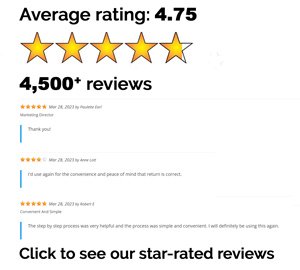It feels like everything costs more these days – housing, food, gas, all the essentials. Part of the problem is inflation. To try to get it under control, the Federal Reserve has hiked interest rates four times this year and more increases are expected to come. The idea is that by making it more expensive for you to borrow money, you’ll hold off on making major purchases, so prices can return to normal. Higher interest rates usually benefit savers but hurt borrowers. Here are four ways you may be affected.
Carrying a credit card balance will cost you more
According to Experian, the average American has $5,589 in credit card debt. With interest rates climbing higher, you’re likely to sink further into debt. Almost all credit cards have variable APRs which are based on the prime rate. As the Federal funds rate rises, the prime rate follows suit, and so does your credit card rate. That means your outstanding balance will cost you more money. Want to pay off your debt fast? Here are some tips that can help.
- Stop using your credit card
- Create a budget
- Reduce your debt using the debt avalanche or debt snowball method
- Make more than the minimum payment
- Get a part-time job to earn more money
You may see your monthly mortgage payment go up
When interest rates go up, borrowers with home equity loans, home equity lines of credit (HELOCs) and adjustable-rate mortgages (ARMs) will see their payments increase. However, if you’re locked into a fixed-rate mortgage, you won’t be affected unless you try to refinance or get approved for a new loan. That’s because fixed-rate mortgages are tied to the 10-year Treasury note. If you’re looking to buy a home soon, you can save money on a new mortgage by:
- Comparing quotes from different lenders
- Improving your credit score
- Putting down a larger down payment
- Choosing a shorter-term loan
- Making additional payments towards the principal
New and variable rate auto loans become more pricey
Buying your dream car is more expensive than ever. In July, the average price of a new car was $48,182 according to Kelley Blue Book. Higher interest rates will also make it more costly for you to finance a new or used car. Borrowers with variable rate auto loans will also be affected. If you’ve already locked in a fixed rate, you don’t have to worry about your monthly payments going up. Before applying for an auto loan, make sure you have your finances in order, so you score a great deal.
- Check and improve your credit
- Research auto loans and interest rates
- Make a larger down payment
- Choose a cheaper car
- Focus on the total amount, not just the monthly payment
- Take out a shorter-term loan
Your savings can grow faster
A bump in the interest rates means you’ll get a better return on your investments. The best places to park your cash are in a high-yield savings account or certificates of deposit (CDs) because they pay the most interest. Money market accounts are another good option. Experts recommend having at least 3 to 6 months of living expenses in savings to protect yourself if you lose your job or face a surprise expense. Here’s what to look for in a savings account.
- Good interest rates
- Low or no monthly fees
- Easy access to your money
- FDIC insurance
File your taxes online the fast and ez way.




